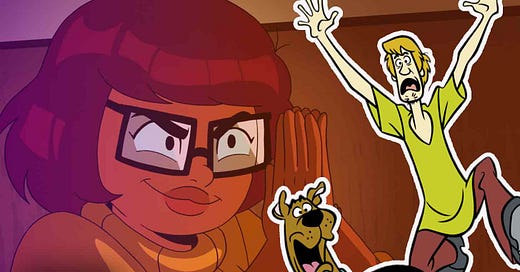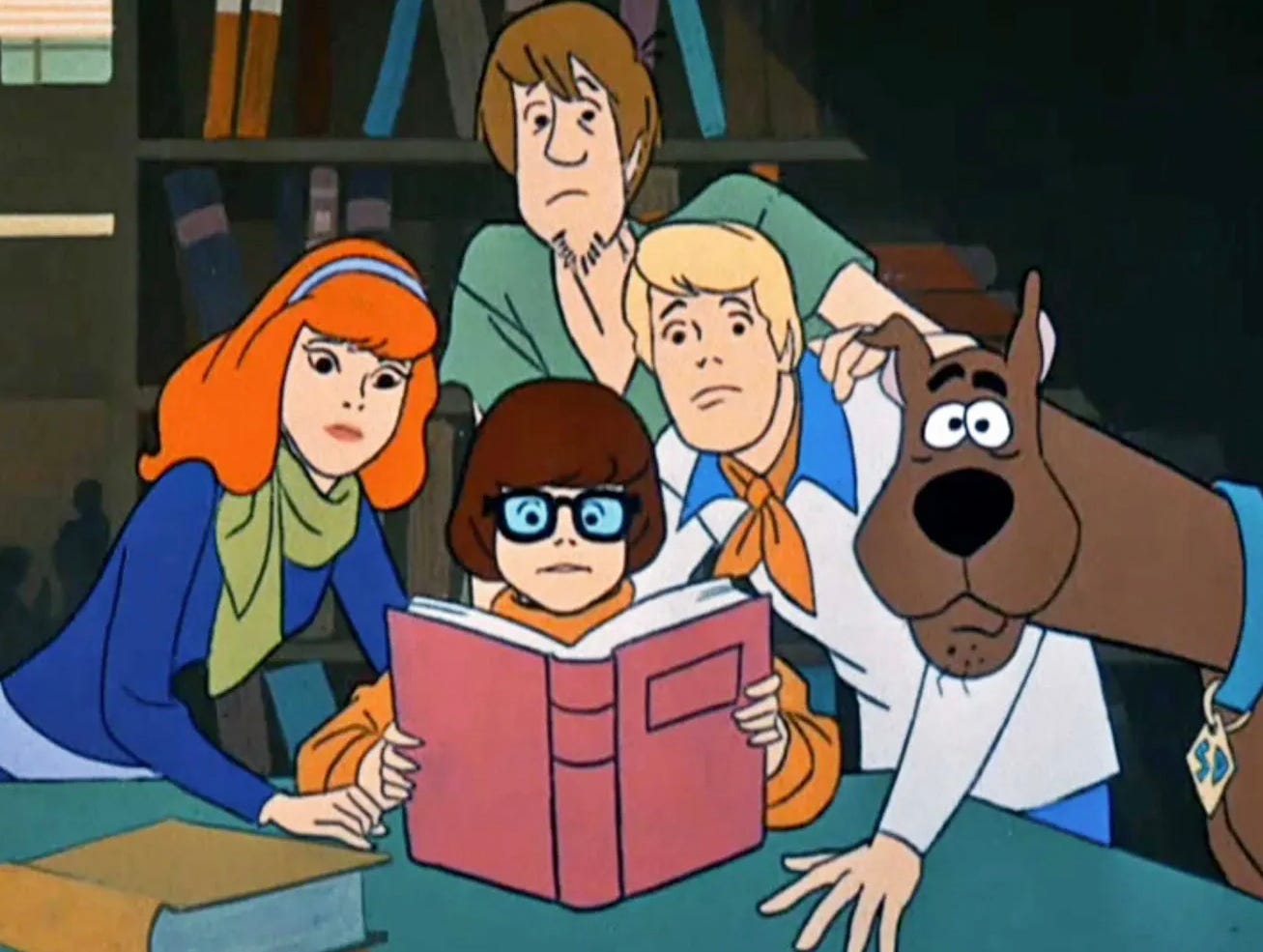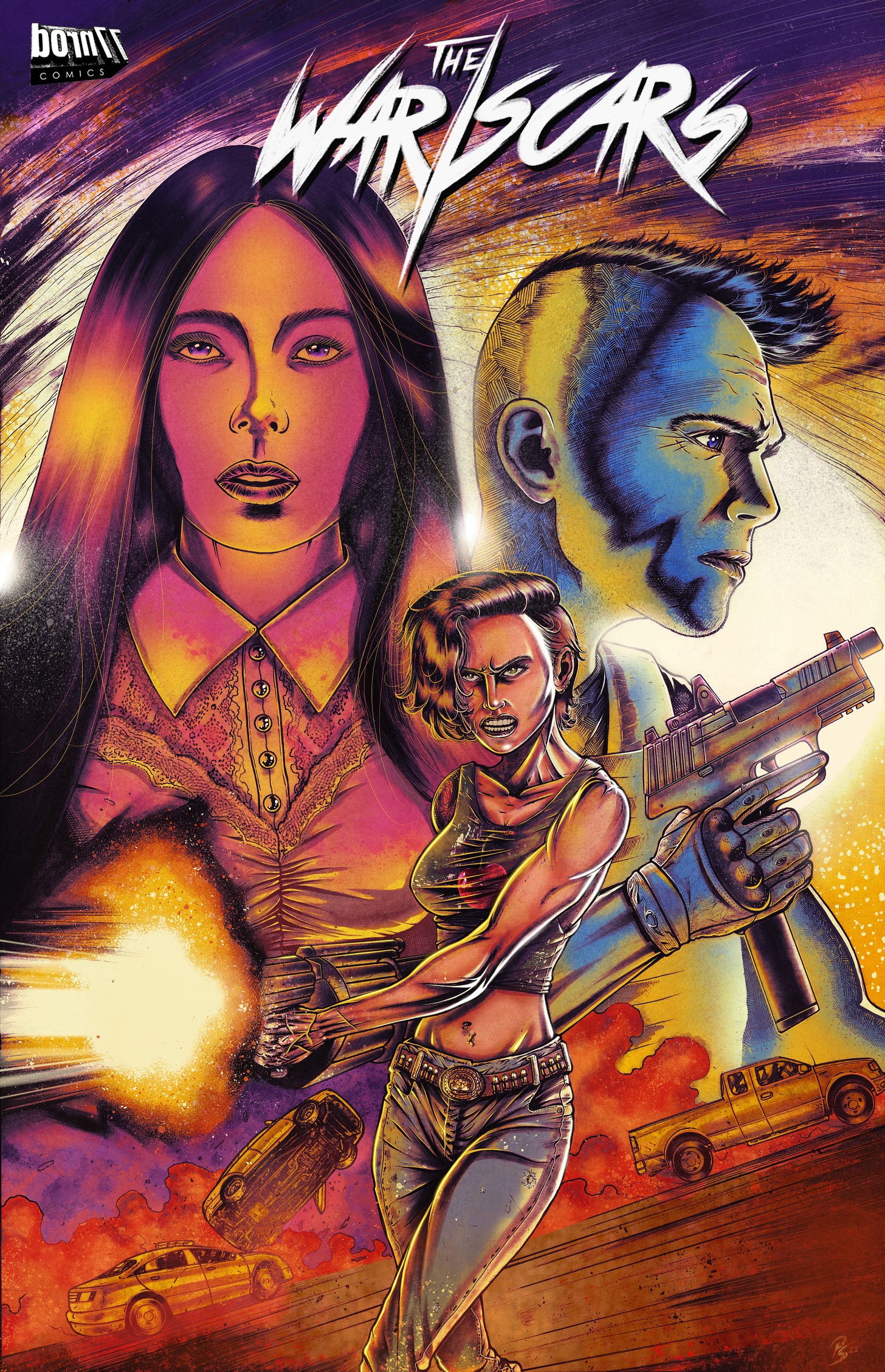“Um, the only hook a good show ever needs is good storytelling.”
That’s a line uttered in the opening of Velma, the new HBO Max animated series, which stars actress and comedian Mindy Kaling as the titular character, who hails from the long-running Scooby-Doo franchise as one of those “pesky” kids that helps solve mysteries with Fred, Daphne, Shaggy, and of course, Scooby-Doo. But, this isn’t your mom’s Scooby-Doo. In fact, there is no Scooby-Doo. And, well, this isn’t your Scooby-Doo, either. As it turns out, Velma has very little to do with the classic characters riding around the Mystery Machine and unmasking villains in the finale and it most certainly doesn’t have a good hook or good storytelling.
No, this is edgy Velma. This is progressive Velma. This is Indian Velma. This is the Gen-Z Velma that fell out of the woke tree and hit every branch on the way down.
Now, I get it. People have grown weary of the term “woke”, but to be honest, it’s a term that practically ushered itself to the top with people labeling themselves as such with a point of pride. The truth is, being “woke” on the left is the same as being red-pilled on the right. Neither serves anything but to say you drank the Kool-Aid and now only see things one way, so the term fits just fine and I’ll use it accordingly, especially for Velma. The irony of Velma is that even progressives are pushing back against it (take a look at the scores on Rotten Tomatoes), while conservatives pop the cork on the much-earned takedown party of the show.
Velma feels written by people who have only ever lived in a great big blue bubble and only ever watched network and streaming shows their entire lives, toppling all the social justice headline issues from Salon to Mother Jones to Buzzfeed. The thing is, that wouldn’t be a problem if it was actually the one thing it needed to be in order to overlook that stuff: good.
Is Velma Really That Bad?
At first, I wasn’t going to write anything about Velma. It felt like I’d be just dogpiling (oh, sorry PETA) or beating a dead horse (PETA, for real, my bad, dude), but the thing is, Velma perplexed me. I have nothing against Mindy Kaling. I quite like her in The Office (where she basically plays Velma), but it feels like she’s just recycling old jokes and stereotypical woke bullshit for Velma and the irony of the show being written by a white male (Charles Grandy) isn’t lost on me.
Social commentary by way of comedy is kind of the purpose of comedy and there are plenty of shows that have mastered it (South Park anyone?). Picking apart the good, the bad, and the ugly of reality is what makes comedy funny. It allows us to laugh at the things that are rooted in our lives and puts them in perspective. And, sometimes, comedy just highlights the absurdity and silliness of our world, which is a much-needed break from the bloodthirsty news machines that grind away at us one post at a time every single moment of every single day. Anyway, you don’t need me to explain comedy to you, as it’s something that we all view in our own way, but two-and-a-half episodes into Velma and I didn’t laugh once. That’s a problem for a show labeled as a comedy.
The characters in Velma are more like reverse stereotypes rather than actual characters with a personality. They hinge it all on everyone being the opposite of what you’d expect and collapse with glee on the concept of making it anti-everything. Daphne? A popular white-privileged bitch who is secretly gay and has two adopted police officer moms. Fred? A popular white-privileged racist asshole with daddy issues. Norville? A black version of Shaggy that’s more vanilla than any of them who also has a white dad. The list goes on and on, with everything being a who’s who of populist woke think stereotypes that may as well be parody.
It’s not that people don’t have adoptive gay parents or bi-racial parents or that some people are still in the closet about their sexuality. These are all things that exist, but it’s all more rare than it is normal, and shows like Velma are so focused on what they view as “bucking a trend” (IE portraying things as they mostly are) or “pushing a narrative” that they go out of their way to toss in everything and the kitchen sink to seem bold, progressive, and edgy, when really they’re about as edgy as a commercial for Airbnb or Kraft mac and cheese.
How about focusing on being good first? If you’re leading with being a show that checks the blocks on all the social justice issues of the day then you’re not making a show, you’re making a Twitter thread. The other major issue with Velma is that it really has no connection to the source material it’s trying to capitalize on. It breaks one of the biggest rules when it comes to adapting a known IP, which is to make sure it adheres to what makes it special to begin with, otherwise don’t do it.
Where Velma Ultimately Goes Wrong
Velma has nothing to do with Scooby-Doo. In fact, you could change up a few names and toggle the looks of Velma, Fred, and Daphne and you’d never know it had anything to do with Scooby and the gang whatsoever. That’s the litmus test right there and Velma fails it.
I watched Scooby-Doo as a kid, like many of you. It was a regular staple and I always had a fun time with it. Sure, Fred and Daphne were pretty vanilla, while Shaggy and Scooby-Doo stole the show (I mean, it IS called Scooby-Doo, after all), while Velma always seemed like the smart one that pulled the gang together. It was fun, sometimes scary, sometimes cool, and always had a cheesy reveal at the end. It was ultimately a show about friends working together despite their differences to solve a mystery. It didn’t try to make me feel guilty, question my sexuality, correct my pronoun usage, or push some other agenda down my throat, other than to never trust the adult, which may well be a damn good lesson in retrospect.
In an era where ripping the meat off of every IP in existence is commonplace, Velma is just one more casualty of what happens when you don’t really care about that IP and turn it into a vehicle for your socio-political commentary and tired blend of “safe space” comedy. There’s nothing “edgy” about Velma, for one. It’s not Harley Quinn (a far better take on expanded IP with a defining voice that tackles SJW themes-ironically also on HBO Max) or Cobra Kai (the gold standard in spinoff IP shows), and it’s certainly not Netflix’s Wednesday, which is a shining example of how to spinoff a single character from an IP into her own franchise, complete with a diversity checklist, as well as a heavy lean into the mythology of the character right down to her roots.
Where Wednesday isn’t afraid to push the envelope, portraying the character in her teenage years for the first time, dealing with the themes and issues of that age group, it also doesn’t pander or cater to a mob, but rather to an audience. Wednesday is a show that Charles Addams would no doubt be proud of, while Joe Ruby and Ken Spears smack their foreheads in the afterlife over Velma.
While Velma may have been born of good intentions to make a subversive animated spinoff show, it ultimately fell to the gods of SJW gobbledygook, losing sight of its true potential and franchise roots in order to be a loud, mean-spirited, and unfunny vehicle that feels shamelessly proud of itself for even existing. There’s no heart, no vision, and no voice to Velma, just Mindy Kaling being Mindy Kaling under the guise of making an edgy take on a franchise character. In this instance, The emperor HAS clothes, and she’s dressed like Velma.
As with anything, I encourage you to check out the show for yourself to see what it means to you. This is just my take and my perspective, but you should always make up your own mind, especially when something controversial hits. In truth, I was excited to watch Velma to see if it was as bad as everyone was saying. Ultimately, I agreed with most of the criticisms out there, but that’s not always the case. So, that’s my caveat when encountering anything controversial. Find out for yourself if your curiosity is sparked. It’s the only way to ever truly know what you’ll feel about anything.
Next On The Way of the Shirey:
I have designs on a deep dive column about underrated and forgotten movies that is in the works, and I have a list brewing that will hopefully entertain and inform my dear readers. Give me some time. Things are heating up for me personally, as I am preparing to move to Utah from Alaska and have to sell my house and do all the moving stuff that comes with it, so I may be sporadic at times but will work to be up on a weekly basis.
I’m also in the final act of book one of my graphic novel The War/Scars, which is roughly 10 or more pages from completion. I just did a color cover, which was done via a Domestika course put on by Robert Sammelin, a brilliant artist whom I admire quite a bit (check out his OGN Kali HERE). I can’t recommend the course enough to fellow artists and it truly unlocked some serious techniques for digital coloring I hadn’t previously known. If interested, take a look, and see below for my cover illustration. I’m quite proud of it. Although the book itself is in black/white, the covers will be in color and I plan to bring in as many artists as I can to contribute to the variants.
I’ll leave you with that. See you next time, and remember to love what you love, even if it’s Velma.







